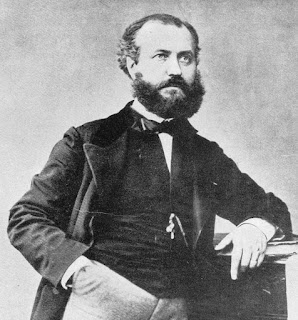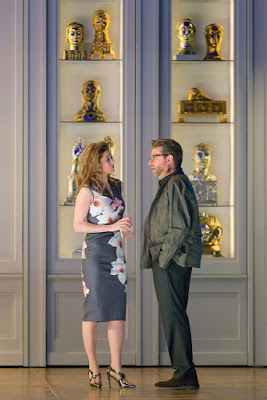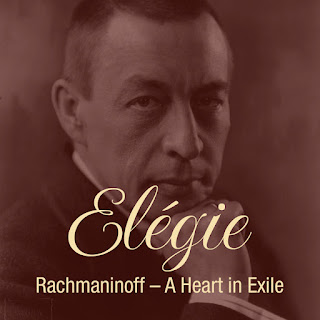 |
| Ambroise Thomas: Hamlet - Quirijn de Lang, Martina Prins - Opera2Day (Photo Ben van Duin) |
The Dutch opera company Opera2Day is not well known in the UK, so whilst I was in The Hague, earlier this year, for the company's production of Ambroise Thomas' Hamlet [see my review] I took the opportunity to have coffee with Opera2Day's artistic director Serge van Veggel to find out more.
Founded in 2007 the company is interested in both opera and music theatre, with a very psychological approach to presentation, with recent work including immersive music theatre and site-specific pieces. For Serge, there are two distinct ways an opera company can function today. Either you produce work of integrity and then try and sell it to the public, or you have to adopt the lowest common denominator approach and sell your soul. Opera2Day tries to forge a middle way, producing work they believe in but taking into account the environments in which they have to perform, producing work for the audiences of today including the younger generation.
 |
| Opera2Day - A Madhouse Fair (Photo Roelof Pothuis) |
In fact,
Hamlet is a bit more of an operatic project than some of Opera2Day's work. Recent pieces have explored various concepts via pasticcios of various composers,
A Madhouse Fair staged in an empty hospital and based on Robert Burton's
The Anatomy of Melancholy, evoked the era when people woould buy a ticket to go and look a the mad people,
La troupe d'Orphee (which won opera of the year) based on Charpentier's
La descente d'Orphee and conceived of as an hommage to the travelling opera companies which provided opera in The Hague in the past and
Dr Miracle's Last Illusion in 2017 focussing on an illusionist from around 1900, but one who researched the edge of life and death in his illusions. This last used music for Olympia (
The Tales of Hoffmann), Lady Macbeth, Ophelie (
Hamlet), each in an illusion, with new music by Daniel Hamburger linking the pieces and fitting them to the new dramaturgy.
With this year's production of
Hamlet, there were both dramatic and economic reasons to create a new version of the opera. Serge felt that so much of the piece was grand opera which did not tell Hamlet's story, and the company explored how to make opera today both practical and something which makes dramatic sense. They used an edited version, shorter in duration with an instrumental ensemble of 16 and the choruses sung by the male soloists plus three female ensemble singers.
There were a number of reasons why
Hamlet was chosen. Seeing the play was one of the reasons why the teenage Serge fell for the theatre, and he wanted to do a version of the opera which bought Shakespeare's text back. But also the Theatre Francais de la Haye was an inspiration. Between 1804 and 1919 this company performed opera at what is now the
Koninklijke Schouwberg in The Hague. This was a French opera house partly because the Dutch court spoke French, and it performed
Hamlet 53 times, some performances with a pupil of Jean-Baptiste Faure the first Hamlet. Opera2Day feels they are heirs to this tradition and have access to a huge archive of scores and parts from the period. Having performed Cherubini's
Medee in 2014,
Hamlet further acknowledged this French tradition.





































.png)







